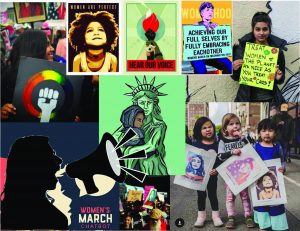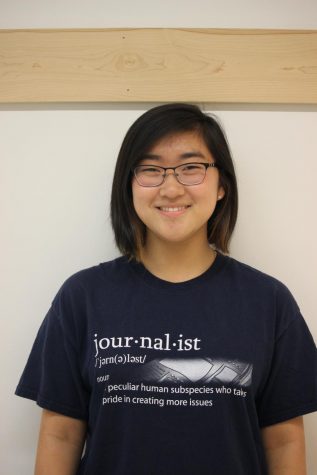No such thing as “too Chinese”
March 8, 2017
“You need to fix this,” my teacher said, holding my personal narrative in her hands. Her eyes bore into mine, but I didn’t feel threatened. I looked at her expecting – “How?”
“It sounds too Chinese,” she continued. I looked a little longer.
In fifth grade, I found no problem with this statement. Being Chinese was all I knew. In fifth grade, I didn’t realize “sounding Chinese” would make my narrative worse.
My parents are both immigrants from Beijing, China.
America seemed like a glorious place where you go to escape poverty, buy a nice house and live comfortably for the rest of your life. To a comparatively rural, undeveloped country back then, America meant opportunities, and my father saw his future here.
In 1985, he arrived in the United States, with $100 in his pocket, no English. Here, he began to build a new life from its foundations. In the first three days, riddled with jet lag, he memorized enough vocabulary to obtain his learner’s permit. In two weeks, the driver’s license was in his hands.
For the next two years, he would work in a restaurant chopping vegetables. Two years later, he’d be able to pay for college tuition. He’d also learn enough English to be “promoted to waiter”.
When my mother joined him at the turn of the century, the idea of America was no longer as strong as it was. In 1985, the American dream was impressive, and everyone’s possibility.
How the tables have turned.
There’s a stigma surrounding immigrants that cannot be disputed. It manifests in the way we speak, we act and think. It’s something so blatant, yet if I were to ask either of my parents if they ever felt different, they’d say “no”, without a doubt. And perhaps that may be true. Perhaps, in this case, the problem is me.
Parents are embarrassing, and that’s a truth parents bask in and children cannot escape. But this embarrassment manifests in very different ways; my peers’ parents embarrass them by dancing in public. My parents embarrass me by talking to a cashier.
English isn’t their first language. But my father and mother have lived here for 32 and 17 years, respectively – time has removed any heavy accent from their words. Their grammar and sentence structures are usually correct. They don’t have the stereotypical “Asian” accent exploited by every standup comedian of the 2000’s, and yet when the bored cashier scans the bag of depressingly empty chips, I cannot meet their eyes. The possibility of seeing discomfort, or a forced, polite smile in the place of boredom is daunting to my brain, and its solution, my brain continues to think, is to hurry the transaction and leave.
Our teenage years are important, because we are the next generation. While we hope to fit in, we are also allowed to question things that don’t feel right. I hear the stories my parents told before, but they resonate with me differently. I see the black and white photos of their childhood, and now, it is not embarrassment I feel, but shame.
My parents have sacrificed and struggled to get here, and to birth me with a burden that is no longer mine to bear, is a privilege they did not experience themselves.
So being “too Chinese” is not something I will apologize for. I am overwhelmingly proud of my parents. Immigrants make the diversity America covets, and I wish the prejudice against would end. Until then, I will always believe in the intrinsic right to engage in the pursuit of happiness.



